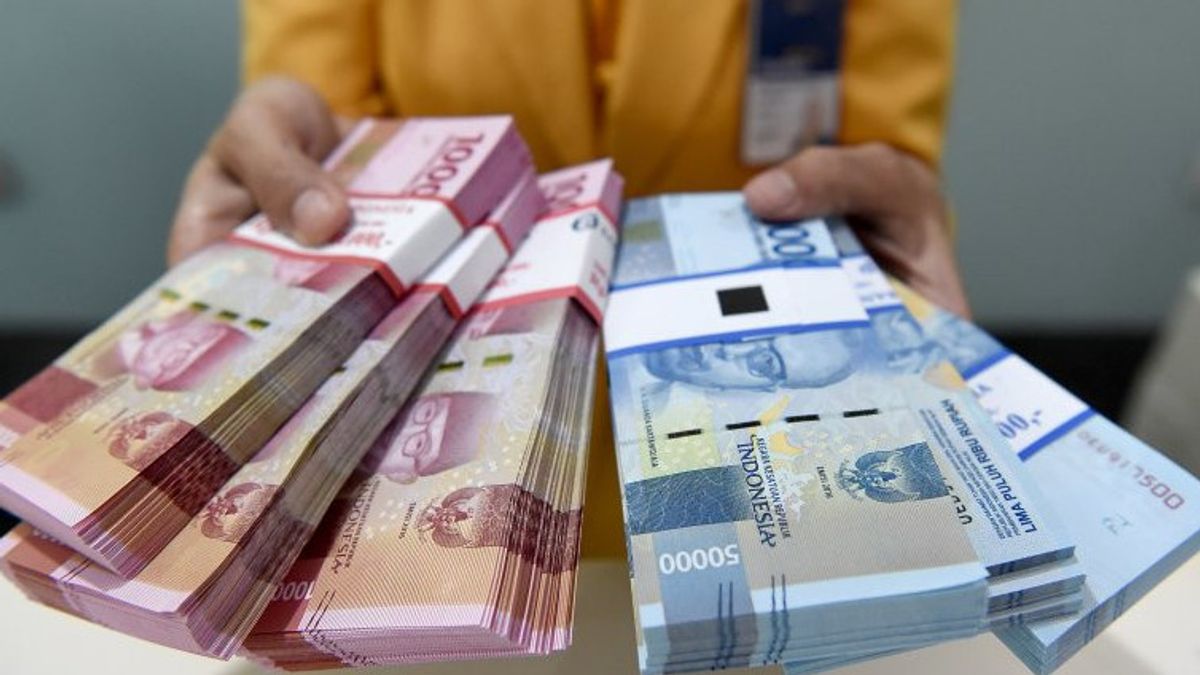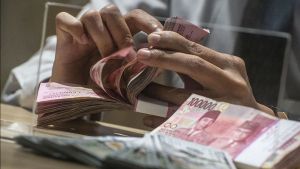JAKARTA - Capital Market Observer Teguh Hidayat responded to the optimism of Coordinating Minister for the Economy Airlangga Hartarto who said the rupiah exchange rate was still stronger than the weakening of other countries' currencies, despite recording a depreciation of up to 6 percent.
"Indeed, the rupiah has also fallen against the dollar, but compared to other currencies, our weakening is not severe. If we compare the pound to 50 percent, the euro is 30 percent, we are only 6 percent," said Teguh in Jakarta, Wednesday, October 12.
According to Teguh, one of the factors is Bank Indonesia (BI) which has not been aggressive in raising its benchmark interest rate, compared to America and Europe. BI raised interest rates to suppress inflation and stabilize the rupiah exchange rate.
Furthermore, Teguh said Indonesia's economic growth is very impressive and resilient to the threat of recession. Especially when compared to European countries that experienced an energy crisis due to the Russo-Ukrainian war.
"On the contrary, we benefit from the energy crisis. We are coal exporters. In Indonesia, we benefit from the value of exports, the trade balance is surplus, as a result of strong economic growth, and the rupiah is strong against the US dollar," said Teguh.
However, said Teguh, Indonesia's profits from commodities, including the energy sector, have made Indonesia still strong in the midst of global challenges. Then the condition of the stock market, is also still interesting.
"Fundamentally, it doesn't matter if the JCI goes down, because from the beginning of 2022 we are still going up 5-6 percent, while others, such as Thailand and Singapore, have gone down," said Teguh.
"Even if the JCI drops, there are psychological factors that affect the news circulating about the 2023 recession," he added.
SEE ALSO:
Previously, Coordinating Minister for Economic Affairs Airlangga Hartarto said that Indonesia's economic fundamentals were able to show impressive performance. According to him, external and internal factors support economic growth in the midst of the global crisis.
"Indonesia's external factors are still very strong. So Indonesia is not included as a country that is vulnerable to financial problems. Internally, our economy is strong because we have a domestic market. Now consumption is also part of economic growth, especially since it is predicted that next year our economic growth will be between 4.8 percent-5.2 percent," said Coordinating Minister Airlangga, Tuesday, October 11.
In the presentation of Coordinating Minister Airlangga who is also the General Chair of the Golkar Party, the rupiah exchange rate has indeed recorded a depreciation of up to 6 percent. However, said Airlangga, it was still stronger than the weakening of the currencies of other countries.
The English, Chinese, Japanese, Arabic, and French versions are automatically generated by the AI. So there may still be inaccuracies in translating, please always see Indonesian as our main language. (system supported by DigitalSiber.id)
















